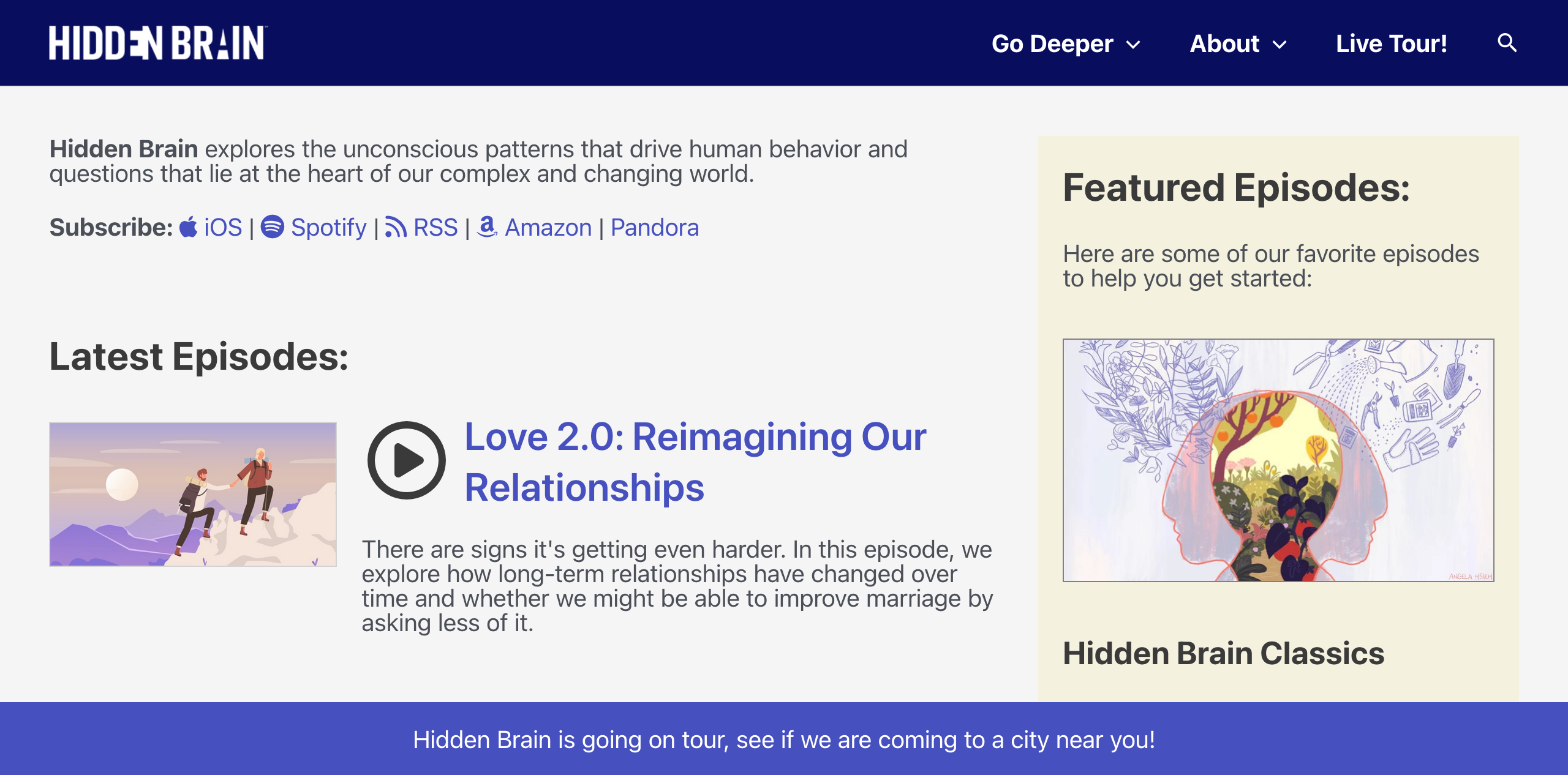Psychologist, and psychology professor, James Cordova discussed his relationship research in a two-part segment of a new Hidden Brain series that aired on a local radio station over the past two weekends.
Hidden Brain, which started as an NPR Morning Edition segment about social science and human behavior, is a series for “curious listeners” who want to become “tourists in their own lives,” and is hosted by Shankar Vedantam. It recently started a new series, which it calls Love 2.0, on long-term relationship challenges.
Cordova and Vedantam discussed ways of mending marriages, and presumably other long-term relationships across two episodes. The first, which aired two Sundays ago, focused on ways that couples can become more concerned with changing their partners, and the second, which was broadcast this past Sunday, explored the thinking behind such concerns and the benefits of a more accepting approach.
Both seem informed by Cordova’s research, which he has detailed in a new book called The Mindful Path to Intimacy for a general audience. In it, he describes the ways that awareness can help couples move beyond comfortable to close, or greater intimacy.
Cordova’s insights are intriguing. For example, he suggests that partners who replace changing with accepting can paradoxically produce the change they are otherwise seeking. Such an approach generally seems kinder, and more connected, which alone justify it even without this paradox.
Cordova at least in these interviews seems to misrepresent the problem. For example, he suggests that partners generally want to blame and change each other, and seems to ignore other possibilities, such as assessing the effects of choices upon their relationships and their lives.
Such assumptions needn’t negate his solution although these might make some question his credibility, especially when he advocates understanding more than being understood. How could he have anything good to offer, some might think, when he misunderstands their motivation, or doesn’t acknowledge the possibility of other explanations?
Regardless, his approach seems to have greater benefits than the change paradox he cites. Others for example have cited an increased pressure upon marriages over time to encompass a wider range of functions, which is actually the focus of the next Hidden Brain episode. Those who can rise to such challenges can be quite satisfied (see Finkel 2017, e.g.), but even these relationships, and the individuals in them, can’t perfect all the time.
A more accepting approach, such as the one Cordova recommends, could allow these and them to be imperfect, and to have limitations, failures, and mistakes, without resorting to designations as flawed or dysfunctional. As such, it neutralizes a need for perfection, and prevents it from being the enemy of the good, or good enough.
Good enough relationships aren’t ones that have settled for second-best as much as are ones that recognize the realities of human existence, or at the very least offer additional options to participants. These are also more humane ways of understanding the sources of much meaning in our days and lives.

Leave a Reply